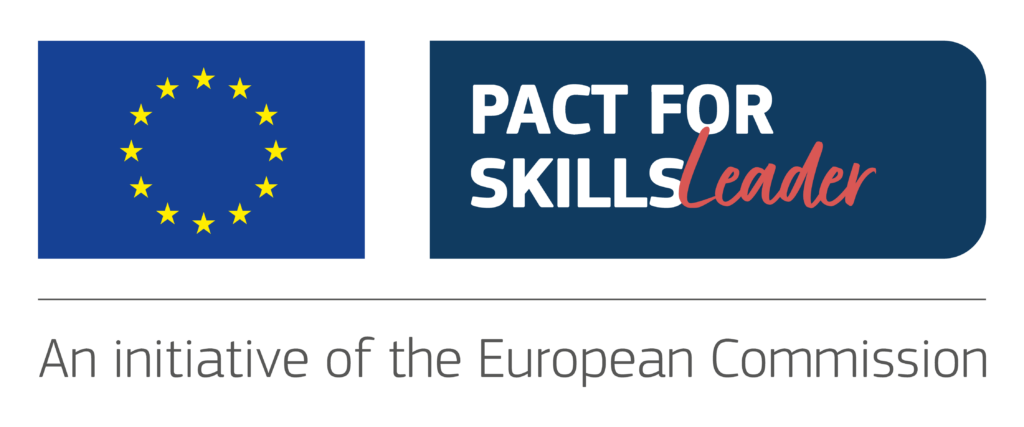Music in Education: Enhancing Learning Through the Power of Sound
Music in Education: Enhancing Learning Through the Power of Sound

Music in Education: Enhancing Learning Through the Power of Sound
Music is a powerful educational tool that enriches learning, boosts student engagement, and fosters emotional, cognitive, and social development. This 7-day course is designed to show educators how to use music to achieve learning objectives, improve classroom dynamics, and enhance students’ critical thinking, creativity, and intercultural awareness.
Course Highlights:
– Level 7 EQC Certification: Attendees will receive a prestigious Level 7 EQC Certificate, Europass Certificate Supplement, and 10 transferable ECVET points, enhancing their professional qualifications.
– Music as an Educational Tool: Discover how music can be used to enhance classroom engagement, foster emotional maturity, and improve students’ confidence and critical thinking.
– Real-World Classroom Applications: Learn practical techniques for using music to meet learning objectives, from increasing focus to fostering team collaboration.
– Cultural Integration: Use music to explore and celebrate intercultural diversity, enhancing students’ awareness and appreciation of different cultures.
– Collaborative Learning: Join a community of educators from across Europe, exchanging experiences and strategies to use music as a tool for collaborative and creative learning.
Why Music in Education?: Research shows that music has a profound impact on learning, helping to develop students’ cognitive skills, emotional maturity, and intercultural awareness. This course will give you the tools to harness the power of music in your classroom, whether you’re working with young learners, adults, or diverse groups. By integrating music into your lessons, you can foster creativity, improve classroom management, and create an inclusive learning environment where every student feels empowered to express themselves.
Course Objectives:
By the end of this course, participants will:
- Understand the role of music as a powerful tool for increasing student engagement, confidence, and emotional maturity.
- Learn how music can enhance self-expression and improve students’ critical thinking and problem-solving skills.
- Develop strategies for using music to foster collaborative learning and teamwork in the classroom.
- Discover how music can help students connect across cultures, promoting intercultural awareness and sensitivity.
- Explore effective teaching strategies and ICT tools for incorporating music into various subjects and lessons.
- Increase motivation and satisfaction in their daily teaching by integrating creative and engaging musical activities.
- Strengthen their understanding of European culture and identity by working alongside peers from diverse countries.
Course Content:
This course will provide a comprehensive overview of the benefits of music in education, covering the following topics:
- The significance of music in education and its role in cognitive, emotional, and social development.
- How music can be used to increase engagement and improve focus and concentration in the classroom.
- Music as a means for self-expression, helping students build confidence and emotional maturity.
- The impact of music on critical thinking and cognitive evolution.
- Creative and active learning in “melodic” classrooms.
- Collaborative learning through music, fostering teamwork and communication.
- Techniques for integrating music into the classroom using ICT tools.
- Lesson planning for music-infused classrooms, combining music with subjects like history, literature, and science.
- Participants will engage in practical exercises based on both theoretical knowledge and their own teaching experiences, ensuring that they can immediately apply what they learn in their own classrooms.
Methodology:
Our course is centered on active, experiential learning, emphasizing collaboration and practical application. Participants will work together to create and share music-based teaching strategies, fostering a rich exchange of ideas. Lessons take place in our center’s classrooms, computer lab, and in the local environment, allowing participants to learn both indoors and outdoors. By the end of the course, participants will have the confidence and skills to use music effectively as a teaching tool.
Unique Learning Opportunities:
Study Visits to Local Schools: Participants may request visits to local schools, such as special needs schools or schools with disadvantaged students. These visits will provide a firsthand look at how music is used in diverse educational settings, followed by reflective activities. There is no extra cost for these study visits.
Gamified Tour of Kalamata: A fun, interactive way to explore the town while learning how to incorporate music and non-formal teaching methods into outdoor learning activities.
Historical Site Visit: Explore a local historical site, linking European history with music, and learning how to apply these concepts in the classroom. There is no extra cost for these outdoor activities.
Social Programme: For those interested, we offer an optional social programme, including intercultural nights, dinners at local restaurants, and excursions to explore the rich culture of the region. These activities are a great opportunity to network with fellow participants and experience Greek hospitality. Participants cover the cost of meals, drinks, and any additional excursions.
Who is This Course For?
This course is ideal for teachers of all levels and subjects who are interested in incorporating music into their teaching to enhance student engagement, critical thinking, and emotional development. It is also suitable for school principals and educators interested in fostering a more creative, collaborative, and inclusive classroom environment.
Tailored to Your Needs:
– The course is highly customizable, starting with a pre-course questionnaire to ensure that training is adapted to each participant’s needs and experience.
– After the course, you’ll receive comprehensive materials, lesson plans, and resources to implement in your own classroom.
Duration and flexibility:
The course is typically 7 days at a cost of €560, but adjustments can be made for shorter or longer courses depending on grant requirements.
Venue and flexibility:
We offer our standard courses at Kalamata, a nice sea-side city in the south of Greece famous for its eponymous olives and olive oil.
It’s a quiet top golf destination and the Telegraph has included it in Europe’s 13 must-visit cities. Here’s a taster video: https://www.youtube.com/watch?v=i9lpkTfvR8Y&ab_channel=%CE%94%CE%AE%CE%BC%CE%BF%CF%82%CE%9A%CE%B1%CE%BB%CE%B1%CE%BC%CE%AC%CF%84%CE%B1%CF%82
Would you like to know what else you can in Kalamata? Check this site: https://experienceskalamata.com/
But, would you like to have the course at another part of Greece or country? Drop us a line to see what we can do for you!
Course confirmation
We have never canceled a course. We offer our standard courses only at our headquarters in Kalamata and only a few times per year. As a result, on top of being able to offer quality services all around, we do not have to meet any certain number of participants to cope with expenses.
Join a European Community:
As part of a European-wide initiative, this course offers you a valuable opportunity to collaborate with peers from across Europe, contributing to your professional growth while deepening your European identity.
Available Dates
- 2024
- 14.04.2024 – 20.04.2024
- 30.06.2024 – 06.07.2024
- 2025
- 04.05.2025 – 10.05.2025
- 06.07.2025 – 12.07.2025
Accommodation
During your stay here you can stay wherever you want. However, we do propose accommodation, which we can book for you and from which we offer free transfers to all course sites and activities.
Pre-payments
We do not ask for money upfront. You can pay whenever you want including when you arrive here.




